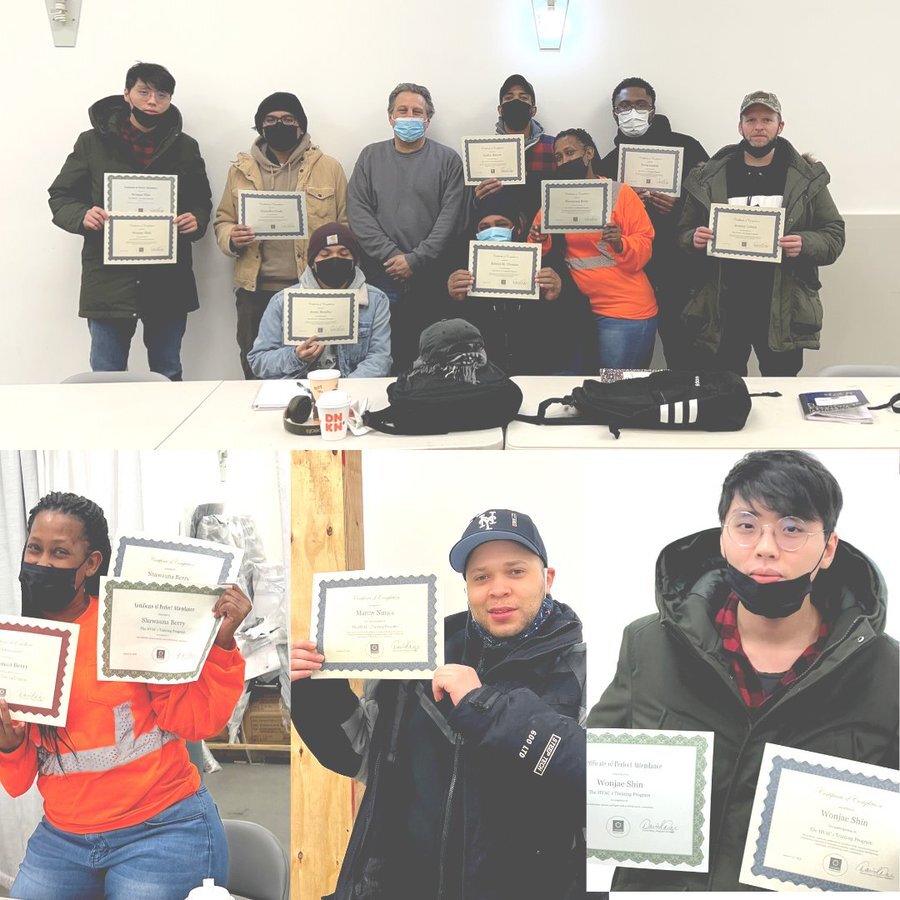

Impact Investments, Workforce & Economic Mobility, Talent Finance
Key Takeaway
We believe Talent Finance, an emerging approach to talent development that trains workers specifically for the jobs employers need to fill, can help ensure a just green transition by expanding access to green jobs to those who have previously been excluded from opportunity.
In early April 2024, the $27 billion Greenhouse Gas Reduction Fund (GGRF) announced $20 billion in initial commitments to finance clean energy projects and accelerate the green transition. But the achievement of this vision hinges on our ability to dramatically grow our green workforce.
We believe Talent Finance, an emerging approach to talent development that trains workers specifically for the jobs employers need to fill, can help ensure a just green transition by expanding access to green jobs—many of which provide pathways to the middle class—to those who have previously been excluded from opportunity.
At Social Finance, we design Talent Finance pathways that enable people who face barriers to education and employment to upskill or reskill into high-growth sectors, including clean energy. Our Talent Finance programs are designed to be more sustainable, meaning they recycle funds to ‘pay it forward’ for future learners.
Below, explore three examples of Talent Finance initiatives that are helping cross-sector stakeholders build a more equitable green workforce and accelerate the just transition.
1. Upskilling New Yorkers to Address the Climate Crisis

In 2021, Social Finance partnered with the New York State Energy Research and Development Authority (NYSERDA) on a Talent Finance initiative in support of the state’s climate goals. The project, backed by an $8.2 million grant from the U.S. Department of Labor and the U.S. Department of the Treasury and funded through the Social Impact Partnerships to Pay for Results Act, aims to train New Yorkers for in-demand careers in the clean energy sector.
Through the project, NYSERDA funds local workforce partners and community-based organizations to upskill New Yorkers from underserved communities for in-demand green jobs. These partners also offer supportive services to ensure that training is accessible to those who are most impacted by income inequality and climate change.
Outcomes—the cornerstone of all Talent Finance approaches—are essential to this initiative. If the project demonstrates a meaningful impact on participant earnings, the U.S. Department of the Treasury and the U.S. Department of Labor will reimburse NYSERDA up to $7.1 million, which it can then re-invest in clean energy workforce development.
2. Preparing Students for Clean Energy Careers in New Jersey
Social Finance is also partnering with New Jersey Governor Phil Murphy, the State of New Jersey, and the NJ CEO Council on a place-based model for Talent Finance called the New Jersey Pay It Forward program. This partnership provides zero-interest, no-fee loans and living stipend grants for participants to enroll in high-quality job training in one of several fields—including HVAC and welding, two “green collar” trades integral to the green transition. Each program prepares students to succeed in one of the state’s in-demand sectors.
After completing training, if participants earn above a minimum salary, they pay back their loans through monthly repayments. If they don’t earn more than this minimum salary, they do not pay. All loan repayments are recycled back into the fund to support future learners—meaning that each government dollar put toward workforce development has the potential to produce an outsized impact.
3. Equipping Coloradans to Enter the Green Economy
In partnership with five Colorado philanthropies and multiple training providers across the state, Social Finance is managing a Pay It Forward Fund to prepare Colorado residents for in-demand, well-paying jobs. The Colorado Pay It Forward Fund provides a range of financing for learners, training providers, and employers. For each type of financing, all loan repayments are recycled back into the fund to support future program participants.

The Master’s Apprentice, one of the Fund’s newest training provider-partners, offers Coloradans from historically disenfranchised communities and those recently released from incarceration a free training program for high-demand trades including carpentry, electrical work, plumbing, and HVAC. The Fund provides zero-interest loans to participants to cover their living expenses while enrolled in training. Participants who earn above a minimum salary after graduation contribute back to the fund through monthly repayments. Those who don’t earn more than this minimum salary are not required to pay. This student-friendly approach to workforce training aims to generate a pool of skilled workers ready to contribute to the green transition in Colorado and beyond.
Explore our Talent Finance solutions→
Interested in exploring more ways Talent Finance can expand access to green jobs? Contact Hydie Kim Hudson, Vice President of Impact Investments.
Related Insight

How a Community of Practice Uncovers Learnings for Clean Energy Job Training

Thinking Like a Talent Investor
With employers across the country facing critical talent shortages, companies are exploring new ways to upskill and reskill workers. This report illustrates how, with intentional design and an “investor” mentality, employers can deploy Talent Finance…

New Strategies for Employer-Led Workforce Development
We believe employers can and should engage more deeply in innovative solutions to today’s talent challenges. That’s why Social Finance is working to identify effective and underutilized opportunities for employers to finance, train, hire, and…